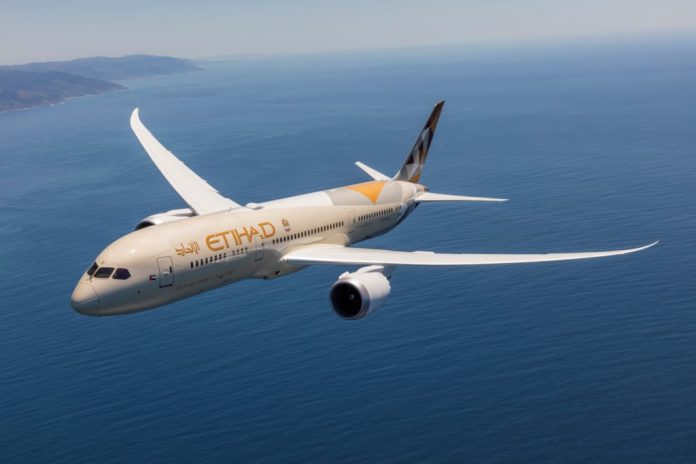However, the carrier still lost US$476 million in 2021, an improvement on the US$1.7 billion lost in 2020.
The airline carried 3.5 million passengers in 2021, with an average seat load factor of 40 per cent.
Passenger loads doubled in the second half of the year, reaching 70 per cent in December as travel demand peaked during the winter holiday period.
The airline recorded a particularly strong surge in passenger volumes in quarter four following the September relaxation of mandatory quarantine periods in Abu Dhabi.
Network capacity came in at 37.21 billion ASKs for the year, with the airline connecting Abu Dhabi to 71 passenger and cargo destinations across 47 countries.
The airline launched or restarted operations to 13 destinations in 2021, most notably introducing scheduled services to Tel Aviv following the normalisation of relations between the UAE and Israel.
Etihad Airways posted passenger revenues of US$ 1.07 billion in 2021, down by 14 per cent year-on-year.
While ongoing travel restrictions and new variants of the virus dampened demand, the airline saw passenger revenues bounce back in the last quarter of the year, recovering to 50 per cent of 2019 levels in December.
Tony Douglas, group chief executive at Etihad Group, commented: “In another year of global uncertainty, Etihad Airways has continued to move forward, strengthen its business, and build on its world-class travel proposition.
“As always, this has been thanks to our remarkable people who have gone above and beyond to make the most of every opportunity.
“Despite the slowdown caused by Omicron, we are confident that the spring and summer season will continue to see a resurgence in travel as more people return to the skies.”
As operations progressively ramped up throughout 2021, Etihad maintained an absolute focus on cost control, decreasing operating costs by a further US$110 million, despite a US$197 million increase in fuel costs driven by rallying oil prices.
























